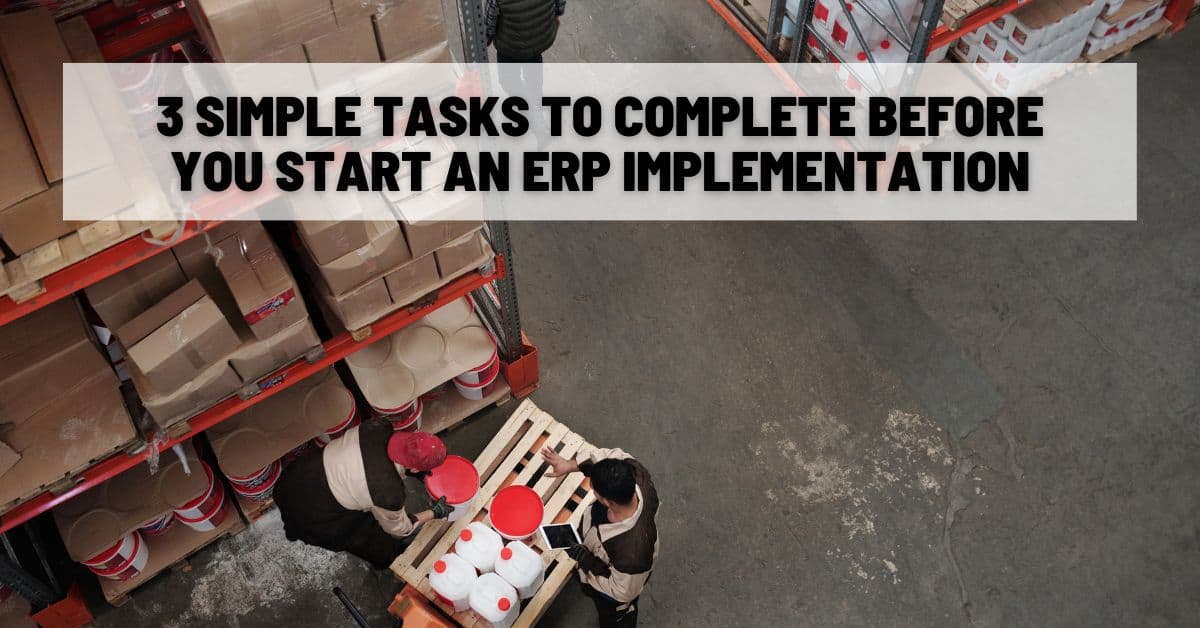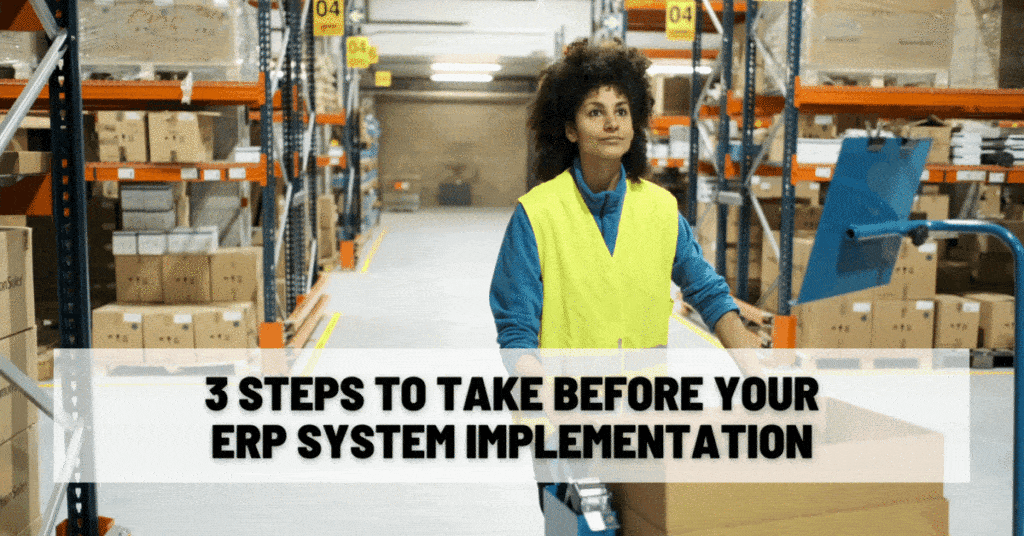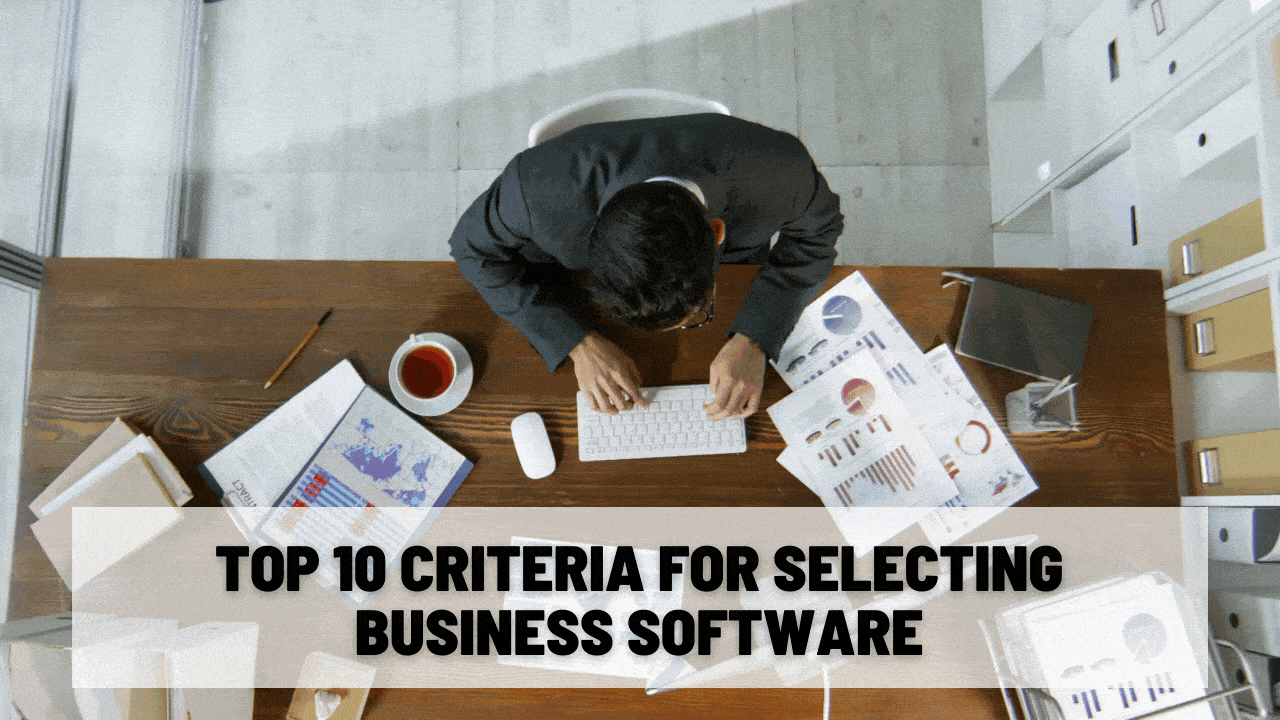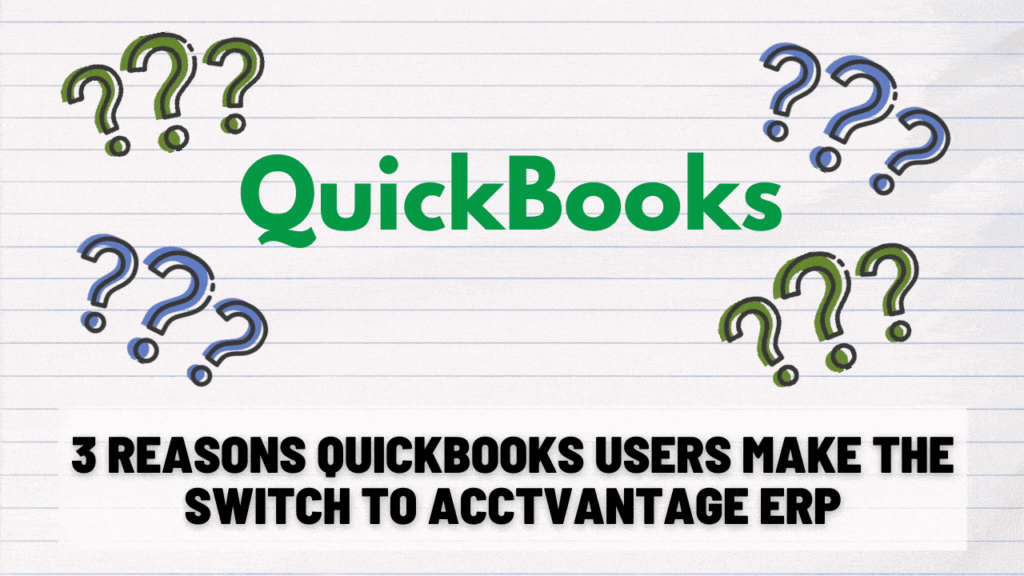3 Steps to Take Before Your ERP System Implementation
Your Pre-ERP To-Do List
As an ERP provider who works with a lot of SMBs (small-to-medium businesses), we’ve seen a lot of business owners through their first-ever ERP implementation successfully.
One question we’re used to hearing is, “How do I know if my business is ready for an ERP system implementation?”
That can be a tough question to answer. But, if you think your business could benefit from ERP, and you want to know how to prepare for the process of implementing an ERP system, we’ve got you covered.

3 Simple Tasks to Complete Before You Start an ERP Implementation
We’ve compiled a list of three extremely important pre-implementation steps for an SMB considering ERP.
To ensure a successful ERP implementation, you’ll want to have these squared away early. Probably before you start shopping around for viable vendors. Definitely before you shake hands on a purchase.
Your ERP implementation itself will be a structured, sequential operation, but the steps below are in no particular order. Complete them in whatever order makes the most sense for your business and your team.
- Get everybody on the same page.
- This should be near the top of your list of priorities. When you start talking about broad process changes like implementing an ERP system, part of your team is going to get justifiably nervous.
- Some staff members are going to be cautious about any change on this scale, while others might be afraid that the ERP system will make their job harder or less important.
- Hear out everyone’s concerns (yes, everyone’s) and work with them to develop a plan that your entire team is satisfied with. Remember, the first and most important step of a successful implementation is commitment. Make sure that absolutely everyone feels secure committing to this.
- Know your requirements.
- When you’re coming up with a list of business requirements to ask potential ERP vendors about, it’s easy to go overboard. You can probably think of dozens of relevant requirements, and most ERP providers will happily tell you that they can handle those needs.
- And that’s mostly true: most ERP systems can handle almost every common business requirement. Which is why you shouldn’t spend too much time on the common requirements.
- Come up with a list of unique or unusual requirements. Find needs specific to your industry or processes that your business does in an uncommon way. Make sure that your provider thoroughly demonstrates that their software can handle every single one of your unique needs.
- Find your points of integration.
- No ERP system is an island.
- Well, no good ERP system, anyway.
- In order to get the most out of your ERP system, you will need it to integrate with other software that your processes rely on. Stuff like 3rd party eCommerce services, for example.
- Get detailed information from your IT folks about every program, app, and service that you will want or need your ERP system to integrate with, and check that against promises from ERP providers.
- And remember to get a clear and thorough demonstration of this integration in action. Anyone can claim that their software integrates with something; don’t believe them until you see it for yourself.
To find out how AcctVantage ERP can support your ongoing business growth and success, click here to get in touch with us.




